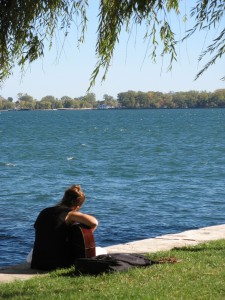런ë˜ì—ì„œ í† ë¡ í† ë¡œ: ë” ë§Žì€ expat ì´ì•¼ê¸°
 지난 주, 우리가 ê³µìœ essay about relocating from Scotland to Canada.
지난 주, 우리가 ê³µìœ essay about relocating from Scotland to Canada.
지금, ì— “ì´ ì›°ë¹™: í† ë¡ í† ,” which appeared in The Economist’s Intelligent Life 잡지, 팀 Roston, 누가 런ë˜ì—ì„œ ì´ë™ (ì˜êµ) to Toronto a decade ago, ì— ëŒ€í•œ ìžì„¸í•œ ë‚´ìš©ì„ ê¸°ë¡í•©ë‹ˆë‹¤ the pleasures of his adopted city than about the trials of expat life:
Tonight we’re having a few other parents over for dinner, including a male married couple—nothing unusual about ê·¸ 여기ì—. Toronto supports numerous first-rate restaurants, but the dinner party thrives here too (ë•ë¶„ì— ìš°ë¦¬ hospitable nature ë° spacious, more-bang-for-buck properties).
If there’s a new person at the table I’m likely to be asked a question that betrays the average Torontonian’s slight uncertainty about their civic pride: "ë‹¹ì‹ ì€ ëŸ°ë˜ì—ì„œ 온? 왜?"
ë‚´ê°€ 시작하지 마ì‹ì‹œì˜¤, I say. I love it here.
Among the things he enjoys are “the world’s least confusing underground (subway) system,” “awe-inspiring” 호수 온타리오, and the way that Toronto “give(와) me a feeling I often have in this city: that I’ve travelled back to the Britain of my childhood.”
ê·¸ë¦¬ê³ ìš© ìºë‚˜ë‹¤ì˜ expat ìƒí™œì˜ ë§Žì€ ì´ì•¼ê¸°, read “캘거리ì—있는 미굔 ë° ë‚´ ìžì‹ ì˜ ìºë‚˜ë‹¤ ì´ì•¼ê¸°.
사진보기 © ìºë¡¤ë¦° B ì¡°. ë‚œíìž




















